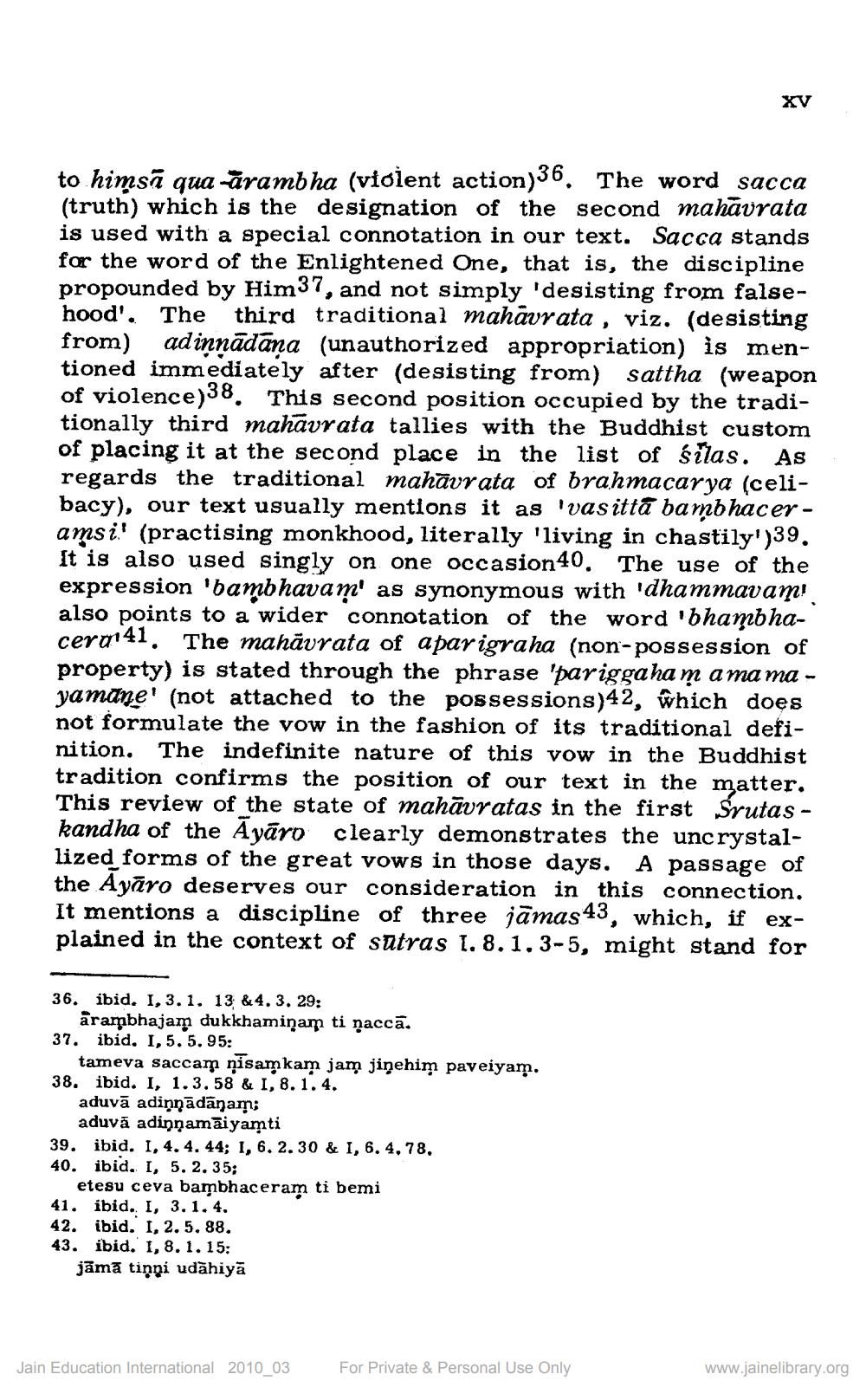________________
to himsã qua ārambha (violent action)36. The word sacca (truth) which is the designation of the second mahāvrata is used with a special connotation in our text. Sacca stands for the word of the Enlightened One, that is, the discipline propounded by Him37, and not simply 'desisting from falsehood'. The third traditional mahāvrata , viz. (desisting from) adinnādana (unauthorized appropriation) is mentioned immediately after (desisting from) sattha (weapon of violence)38. This second position occupied by the traditionally third mahāvrata tallies with the Buddhist custom of placing it at the second place in the list of silas. As regards the traditional mahāvrata of brahmacarya (celibacy), our text usually mentions it as 'vasittā bambhacer - amsi' (practising monkhood, literally 'living in chastily')39. It is also used singly on one occasion40. The use of the expression 'bambhavam' as synonymous with 'dhammavam! also points to a wider connotation of the word 'bhambhacerai41. The mahāvrata of apar igraha (non-possession of property) is stated through the phrase 'pariggaha m ama ma - yamane! (not attached to the possessions 42, which does not formulate the vow in the fashion of its traditional definition. The indefinite nature of this vow in the Buddhist tradition confirms the position of our text in the matter. This review of the state of mahāvratas in the first Srutas - kandha of the Ayāro clearly demonstrates the uncrystallized forms of the great vows in those days. A passage of the Ayāro deserves our consideration in this connection. It mentions a discipline of three jāmas 43, which, if explained in the context of satras 1. 8.1.3-5, might stand for
36. ibid. I, 3.1, 13 &4.3. 29:
arambhajam dukkhamiņam ti naccā. 37. ibid, 1,5.5.95:
tameva saccam nisamkam jam jinehim paveiyam. 38. ibid. I, 1.3.58 & I, 8.1.4.
aduvā adiņņādāŋam;
aduvă adingamāiyamti 39. ibid. 1, 4.4.44; 1, 6.2.30 & 1, 6. 4,78, 40. ibid. I, 5. 2.35;
etesu ceva bambhaceram ti bemi 41. ibid. I, 3.1.4. 42. ibid. 1, 2.5. 88. 43. ibid. 1,8.1. 15:
jāmā tiņni udāhiyā
Jain Education International 2010_03
For Private & Personal Use Only
www.jainelibrary.org




